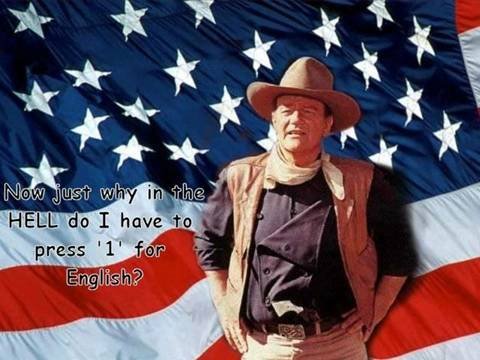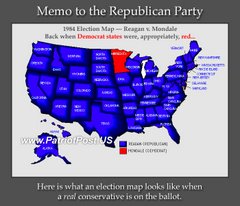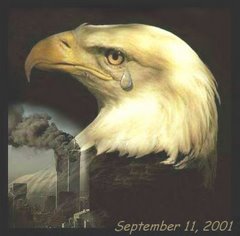The Inspiration Behind "Trolls"

Last night, prior to posting "Trolls", I was catching up on my reading from all the sources I subscribe to. One of my favorite radio hosts is Dennis Prager because he refuses to argue, preferring understanding to agreement.
I happen to think along the same lines.
His post at Townhall.com titled "Internet Anonymity is as Destructive as Internet Porn" was the inspiration for "Trolls". Since my trackbacks don't work too well with Townhall.com, I'm pasting his entire article here. It's thought provoking and should give all true, rational adults something to think about before they post "flaming" comments on others' blogs. I know I have tightened up my rules and will no longer tolerate "flaming" in my comments sections on my blog. I won't succumb to the childish nonsense instigators choose to toss out. For more on my rules, go back and read "Trolls".
A word to the wise, however. Should you choose to "flame" me, either on my blog or a blog I contribute to, I will have no compunction showing comment threads in all their glory and exposing your childishness for the world to see, complete with links. I'm simply not going to tolerate it any longer and perhaps, if you are shown to be the child you choose to act as, often enough, you may start to see the light that people are tired of such behavior and may actually choose to act as a rational, reasonable adult.
Here's Mr. Prager's article:
********************Whenever people lament aspects of the Internet, they are most likely to lament the net's ubiquity of pornography. Only God knows, for example, how many kids, searching for some government information, typed in "whitehouse.com" only to be greeted by pornographic images (happily, the website changed hands in 2004). It is almost impossible to completely avoid such imagery even with filtering programs.
But there is something at least as awful -- and arguably more destructive -- that permeates the Internet: the lies, vitriol, obscenities and ad hominem attacks made by anonymous individuals on almost every website that deals with public issues.
Sexual images and prose for the purpose of sexual titillation are not new. But the ability of anyone in society to debase public discourse is new. Until the Internet, in the public's best known venue for self-expression -- letters to the editor published in newspapers and magazines -- people either expressed themselves in a civilized manner or they were not published. And overwhelmingly, even those letters that were not published were written in a respectful manner because the letter-writers had to reveal their real names and their addresses (though only names and cities were published).
Being identifiable breeds responsibility; anonymity breeds irresponsibility.
That is why people -- even generally decent people -- tend to act so much less morally when in a crowd (the crowd renders them anonymous). That is why people tend to act more decently when they walk around with their names printed on a nametag. That is why people act more rudely when in their cars -- they cannot be identified as they could outside of their car. There is no question but that most people would write very different entries on the Internet if their names were printed alongside their submission.
E-mail provides another example. It is the very rare individual who sends a hate-filled, obscenity-laced e-mail that includes his name. As the recipient of such e-mails, I know firsthand how rarely people identify themselves when sending hate-filled mail. It is so rare, in fact, that I usually respond to hate mail that includes the writer's name just to commend him for attaching his name to something so embarrassing.
The Internet practice of giving everyone the ability to express himself anonymously for millions to read has debased public discourse. Cursing, ad hominem attacks and/or the utter absence of logic characterize a large percentage of many websites' "comments" sections. And because people tend to do what society says it is OK to do, many people, especially younger people, are coming to view such primitive forms of self-expression as acceptable.
Some might argue that anonymity enables people to more freely express their thoughts. But this is not true. Anonymity only enables people to more freely express their feelings. Anonymity values feelings over thought, and immediate expression over thoughtful reflection.
There is not one good reason for any website, left or right, or non-political, to allow people to avoid identifying themselves. Anyone interested in serious political discourse, or in merely lowering the hate levels in our country, should welcome the banning of anonymous postings.
It would be interesting to find out how many websites continue to encourage anonymous postings. Presumably, they would pay some financial price by insisting on posters identifying themselves. I don't know why, and I don't know how big a price that would be, but it is hard to imagine that it is higher than the price society pays when hate, anger and irrationality become the normal way of citizens expressing themselves. And even from the websites' own perspectives this policy is probably self-defeating. I doubt I am alone in reading fewer and fewer comments sections because of the low level of so many of the postings. Just as bad money chases away good money, moronic postings chase away intelligent ones. I have come to the point where I even read fewer comments posted about my own columns.
Websites should insist on listing names and cities of those who post comments, just as newspapers and magazines do.
The irresponsible, the angry, the obscene and the dumb have virtually taken over many Internet dialogues. But there is an easy fix, and websites owe it to society to use it. Just ban anonymous postings.
Wise words, indeed.
Sphere: Related Content











































|